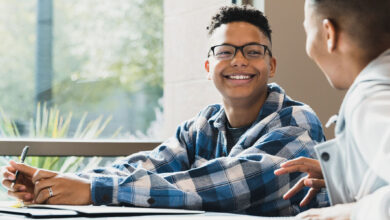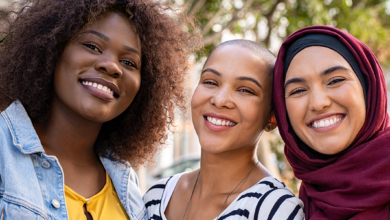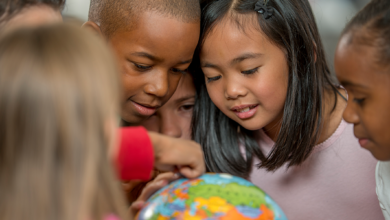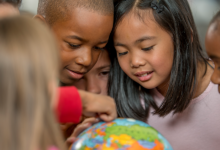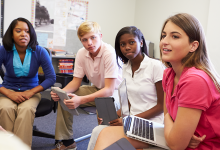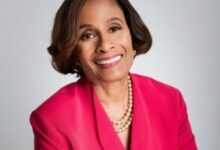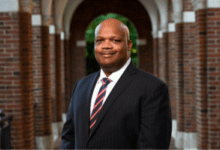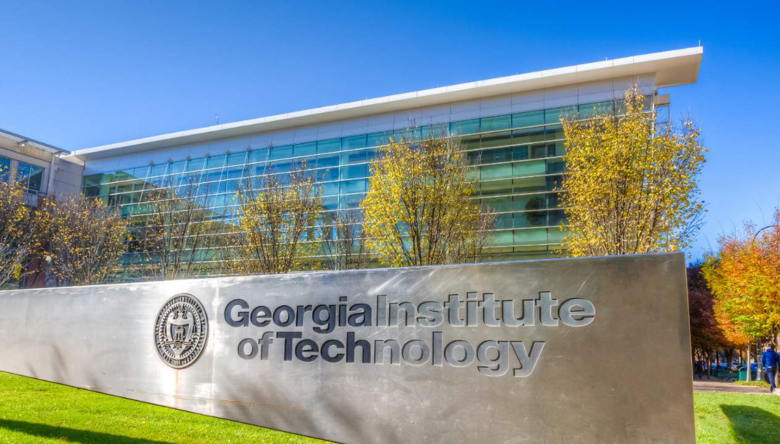
Amazon partners with Pharrell Williams’ YELLOW, Georgia Tech to launch competition to inspire students to pursue computer science
Amazon, Pharrell Williams’ education equity nonprofit YELLOW, and the Georgia Institute of Technology today announced a new educational collaboration called “Your Voice is Power” to encourage middle and high school students to share their voice on equity while learning to code new music remixes.
“Your Voice is Power” introduces students to real-world computer science-based careers held by people of color. Through this program, students will meet professionals who use music and computer science to fight for racial justice—people including Mike Larson, Pharrell’s audio engineer; Chalece DeLaCoudray, a music technologist and Georgia Tech alumna; and Joycelyn Wilson, Ph.D., Assistant Professor of Hip Hop Studies and Digital Media at Georgia Tech.
“This collaboration between YELLOW, Amazon, and Georgia Tech is a celebration of Black creators and change-makers,” Pharrell said. “YELLOW at its core believes that education is a pathway to success. Teaching kids future-ready skills like coding, especially those kids for whom opportunities like this have not been equally distributed, is how we prepare the next generation of entrepreneurs.”
“Your Voice is Power” is the latest initiative between Amazon Future Engineer, Amazon Music, and Georgia Tech to expand computer science education to more students from underserved communities and groups currently underrepresented in tech.
It includes five teaching modules with lesson plans that teach coding while kick-starting meaningful conversations among students and their teachers about the importance of racial justice.
This collaboration concludes with a competition for students to share their own voices through remixing Pharrell’s new song “Entrepreneur” using computer code on Georgia Tech’s learn-to-code-through-music platform, EarSketch.
“Across 13 research studies with over 1000 participants, Georgia Tech has shown that students who learn to code through music using EarSketch have a higher intention to persist in studying and pursuing careers in computing – especially BLNA students and women,” said Jason Freeman, Professor and Chair of the School of Music and the co-creator of EarSketch.
The Bureau of Labor Statistics (BLS) projects that from 2014 to 2024, the market for computer science professionals will grow twice as fast as the rest of the labor market. BLS research also shows that in 2019, the median annual salary for computer science occupations was approximately $48,000 greater than the median wage for all occupations in the U.S.
What’s more, while the number of Black students obtaining STEM degrees has increased over the last two decades, Black professionals remain underrepresented within American science and engineering enterprises.
The National Science Board (NSB) estimates that the number of Black professionals in science and engineering must more than double to be representative of Black people in the U.S. population in 2030.
“We’re honored to join Amazon Future Engineer, and together build further awareness and enlist more artists to join this program that will break down barriers for students from underrepresented communities,” said Ryan Redington, VP of Music Industry at Amazon Music. “The more we support the next generation of artists and creators, the better the future of music will be. We are proud to work alongside Pharrell, a respected, visionary voice in promoting racial justice and helping students achieve long-term success.”
This partnership is among the latest in Amazon’s ongoing work to support education and racial equality initiatives in communities across the country where its employees live and work.
Recently, the company donated $10 million to organizations that are working to bring about social justice and improve the lives of Black and African Americans. Recipients—selected with the help of Amazon’s Black Employee Network (BEN)—include groups focused on combating systemic racism through the legal system as well as those dedicated to expanding educational and economic opportunity for Black communities. A
mazon followed this initial donation with a hugely successful employee match program that resulted in an additional $17 million going to these organizations for a total of $27 million from the Amazon community.
“Your Voice is Power” will also encourage students to channel their learning into an original remix of Pharrell’s new song ‘Entrepreneur’ – a celebration of Black culture – using Python computer code.
Specifically, they will use looping (repeating) to extend the length of their song, use strings to create new beats, create custom functions representing different song sections, and learn to upload their own sounds to the EarSketch library.
Beyond this competition and throughout 2021, Amazon Future Engineer and Amazon Music will work with additional inspiring artists to add their songs to the EarSketch library. Right now, students can also use computer code to remix Ciara’s songs “Set” and “Melanin,” and Common’s “God is Love” on EarSketch.
“YELLOW’s mission is to even the odds for kids through education. We’re teaching for the future,” said Mike McGalliard, CEO of YELLOW. “Georgia Tech’s EarSketch platform is a powerful tool for kids to explore the connection between coding and creativity. In working alongside Amazon to give kids access to platforms like this, we can help them bring their ideas to life.”
All middle and high school students around the United States and Canada can participate in “Your Voice is Power.” The first round of the competition will run from January 19 through March 12. The second round of the competition will run from March 15 through June 4.
Students who submit their remixes to the competition will be judged by a panel of Amazon engineers, Amazon Music team members, and music industry professionals. W
inners will be chosen based on the quality of music, complexity and organization of their code, and their inclusion of thoughtful messaging and calls to action about the importance of racial justice. Teachers and students can visit AmazonFutureEngineer.com to get started, and for a full list of rules, prizes, scoring guidelines, and accompanying curriculum.



